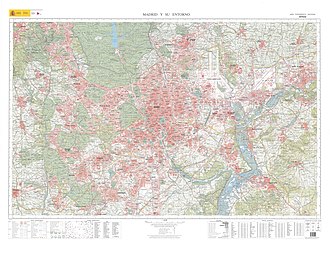Metropolitan area


A metropolitan area is a city and its surrounding suburbs. The word "metropolitan" comes from two Greek language words meaning "mother" and "city". A metropolitan area may be much larger than its inner city, and its suburbs may be smaller towns and villages which are now connected to the larger city as suburbanization has spread. The biggest such metropolitan area is that of Tokyo. 8.5 million people live in Tokyo itself, 36.5 million live in the metropolitan area.
A metropolitan area is a large urban area. The inner city may look little different from the surrounding area of buildings and lights. The entire built-up area is the metropolitan area. The inner city may be near the middle, or to one side. Some urban areas have more than one inner city.
Some places, such as in Australia, have metropolitan government. The entire metropolitan area is included as a part of the city, and the population of the suburban area is considered to be part of the city's population.
Sydney, for example, has a population of approx. 4.5 million people, which includes the population of the suburbs, although there are some places which are part of the Greater Sydney Area, whose population does not count toward the population of Sydney.[1]
Related pages
[change | change source]- List of largest cities (includes a list of metropolitan areas)
- Metropolis
References
[change | change source]- ↑ "Metropolitan Sydney". Archived from the original on 2017-01-17.
